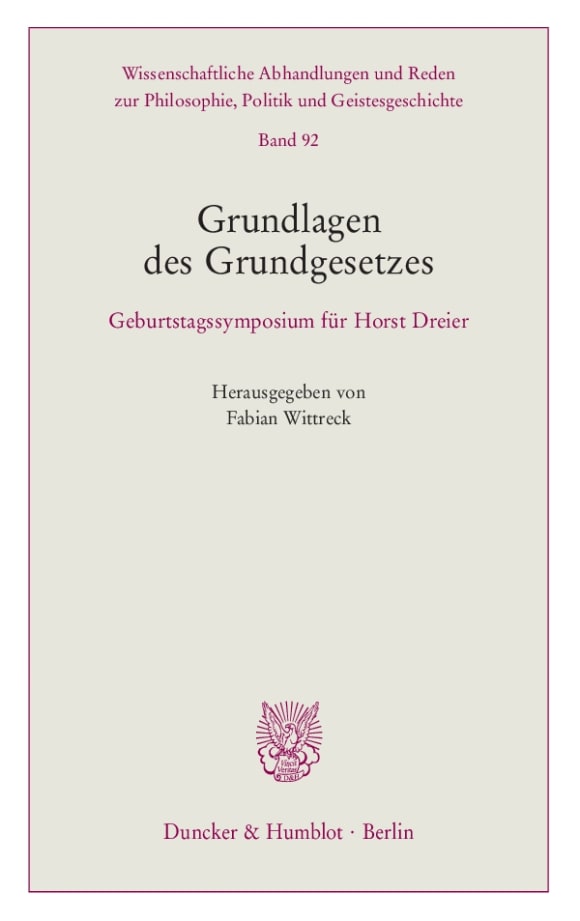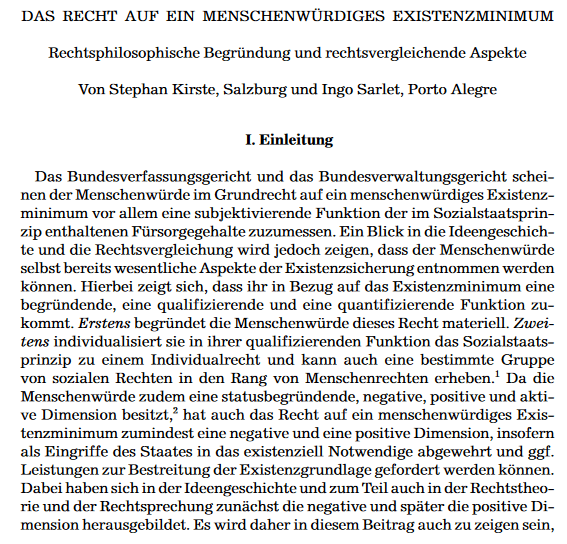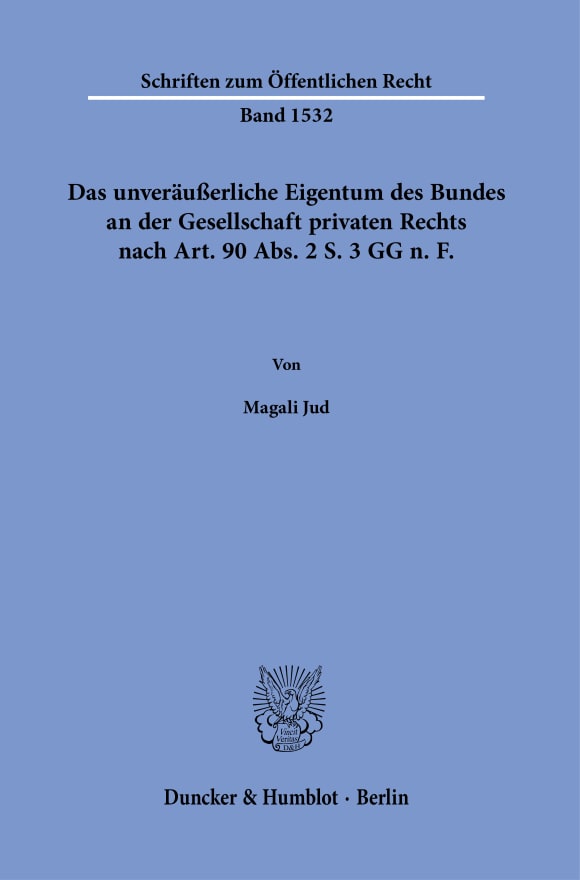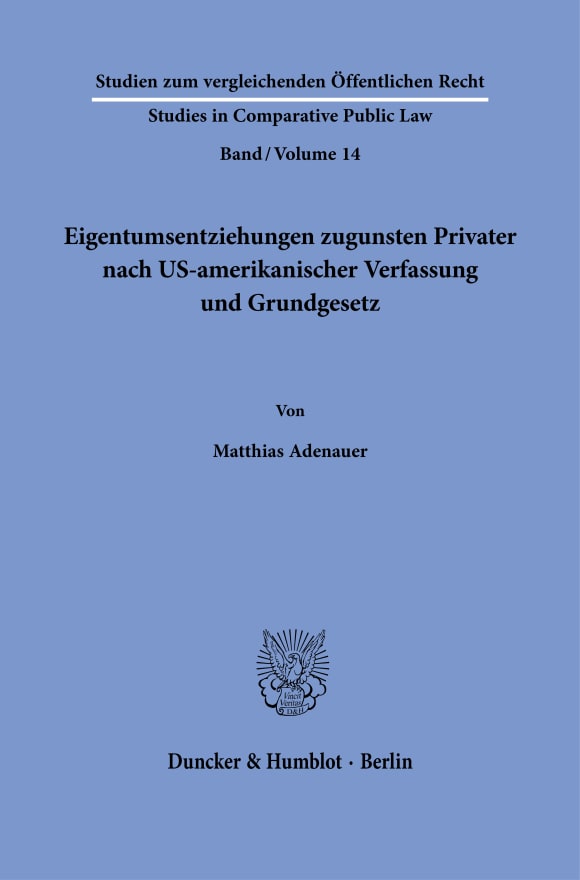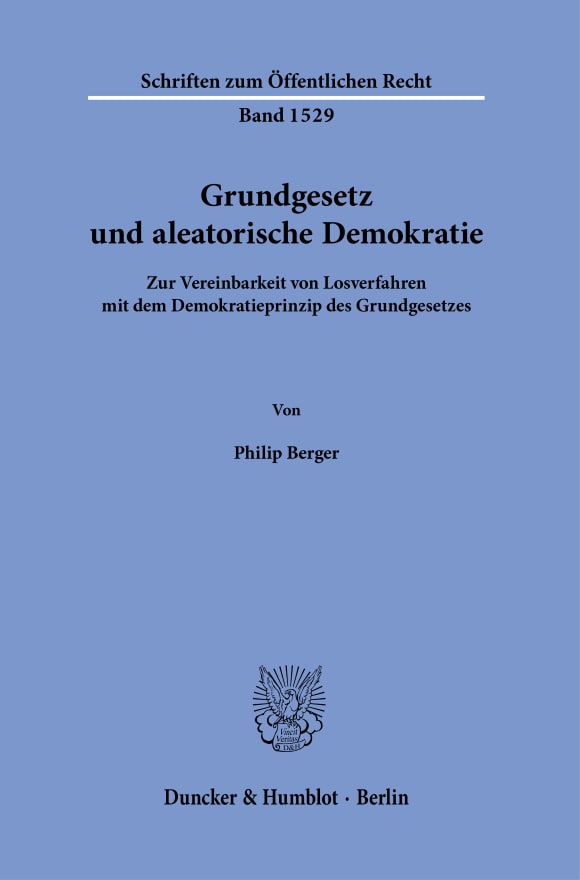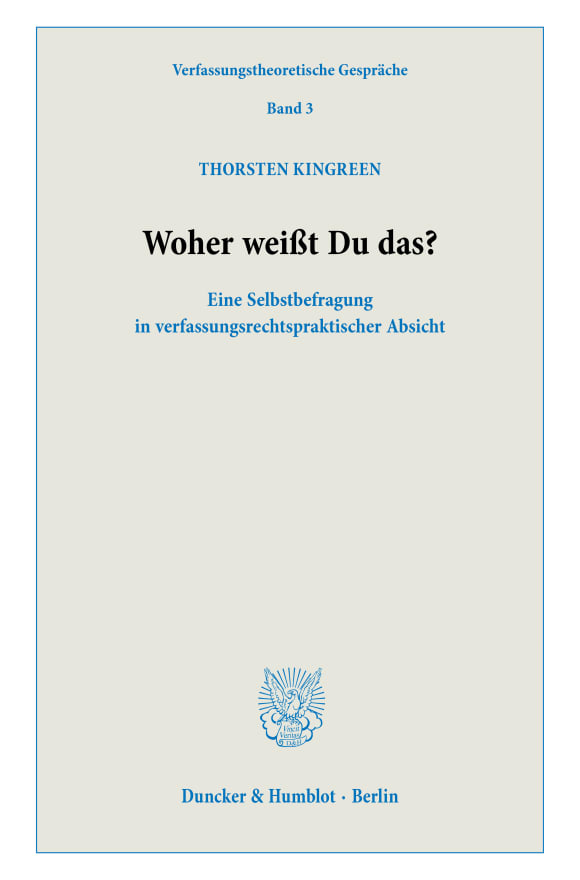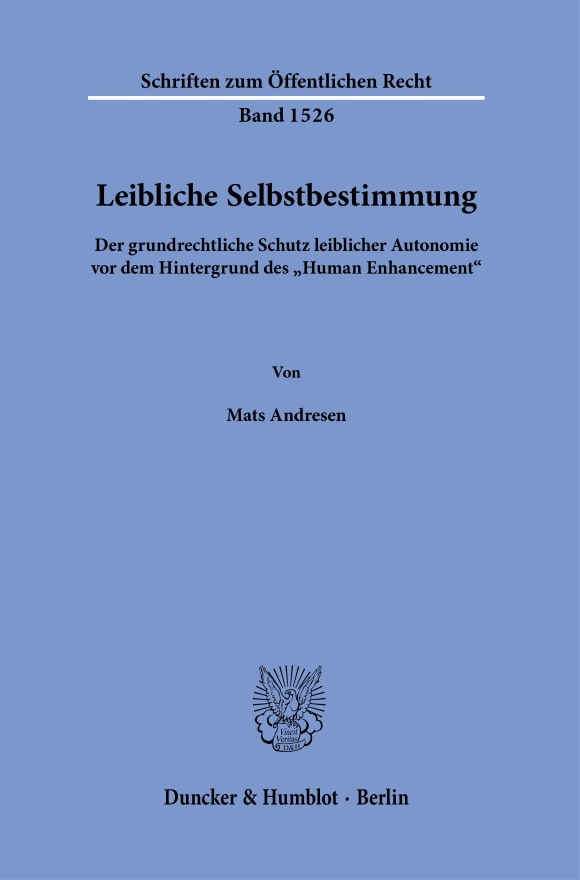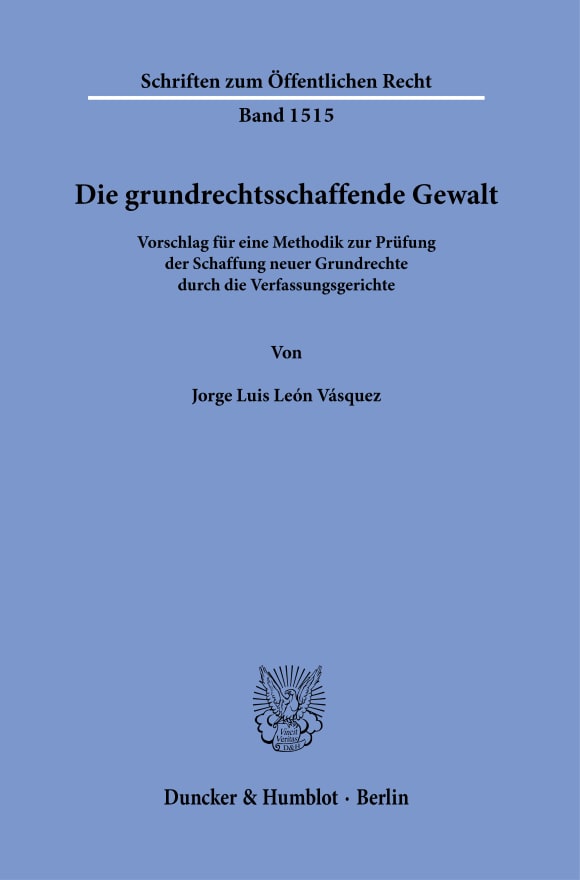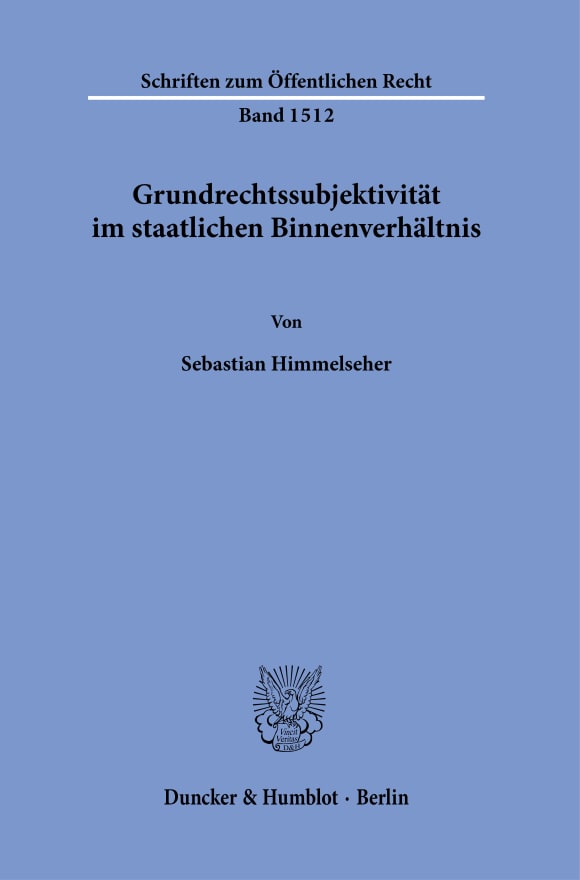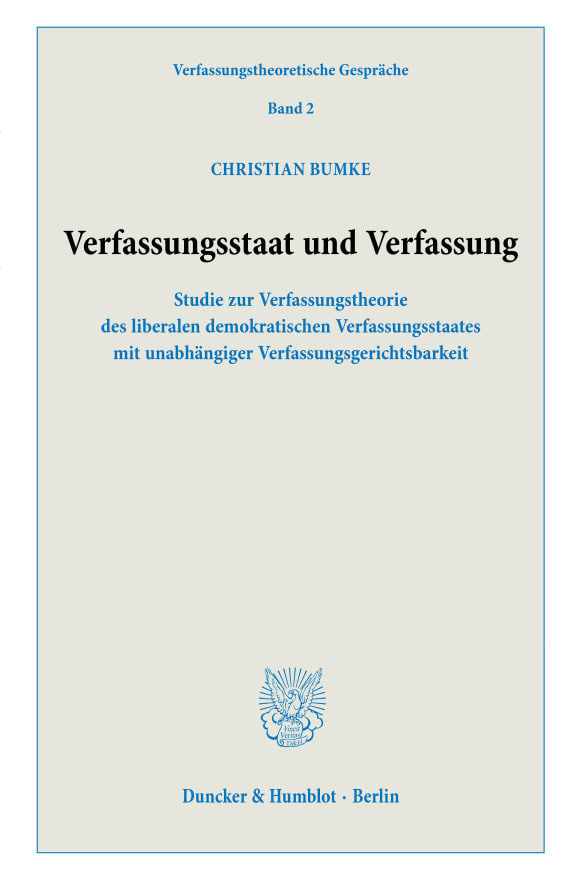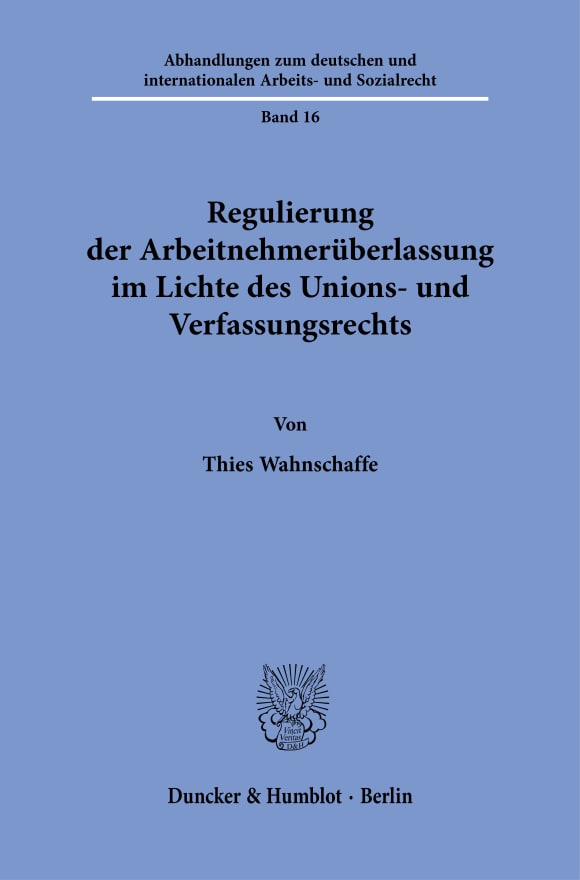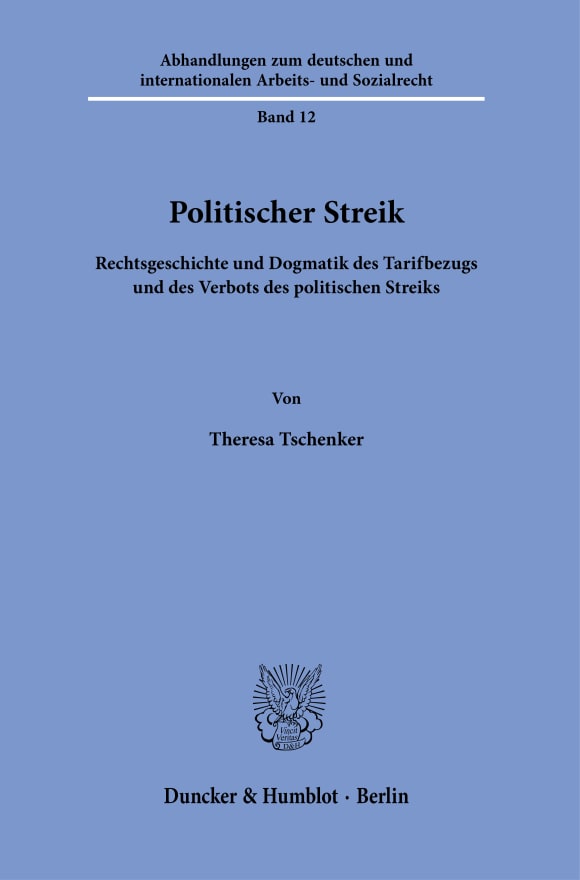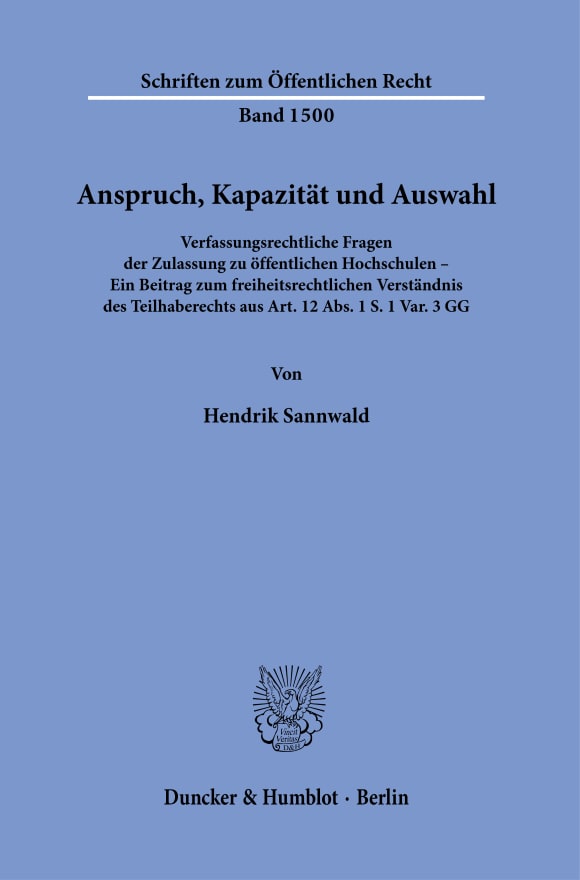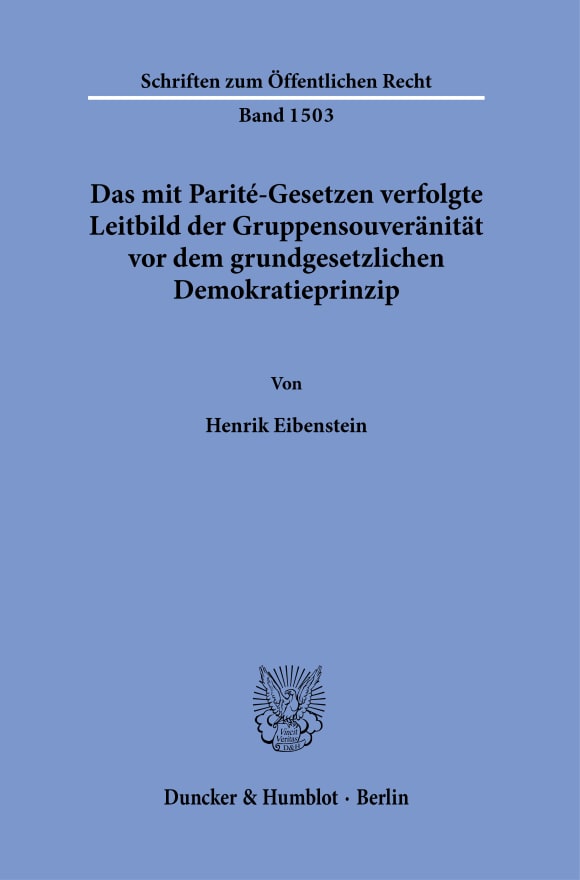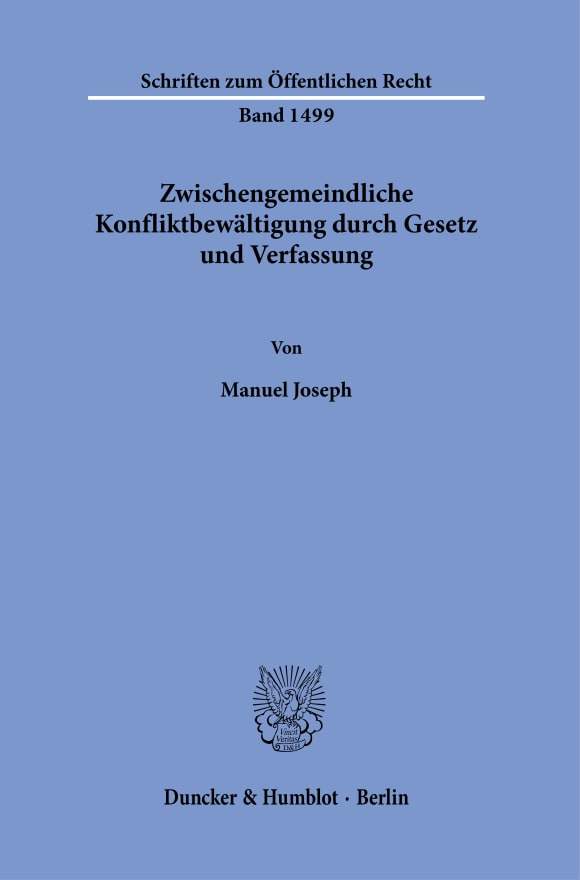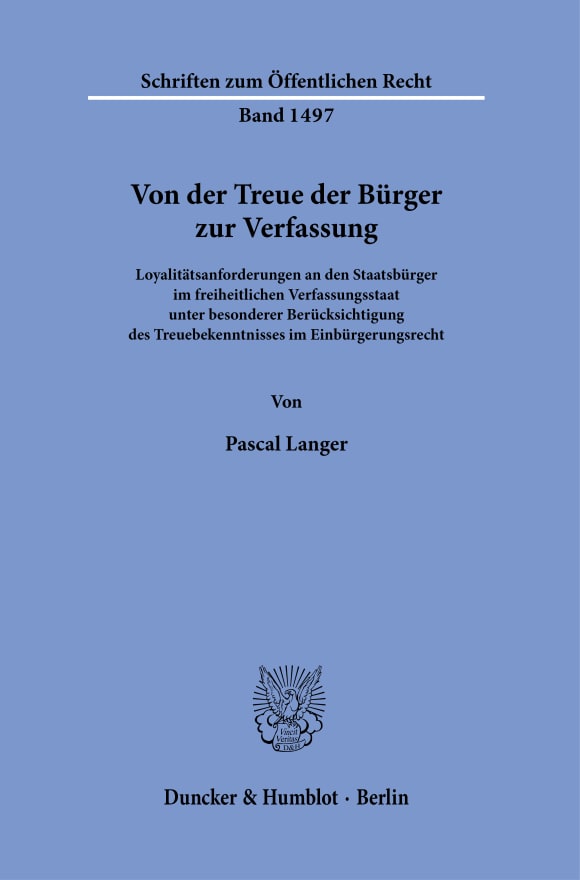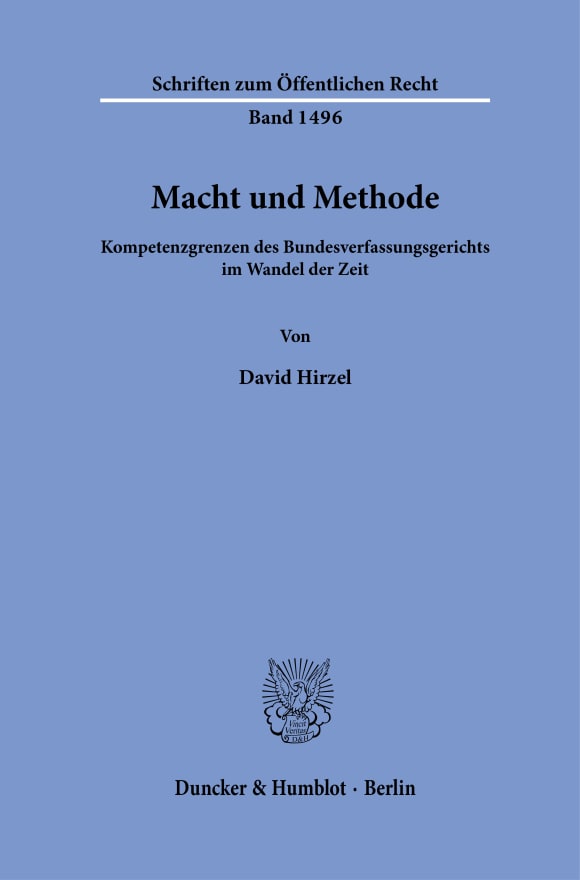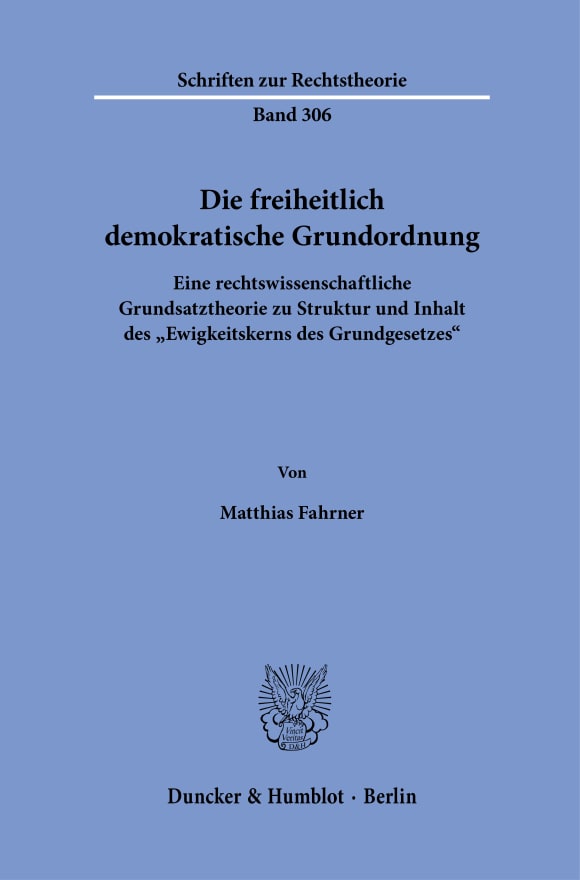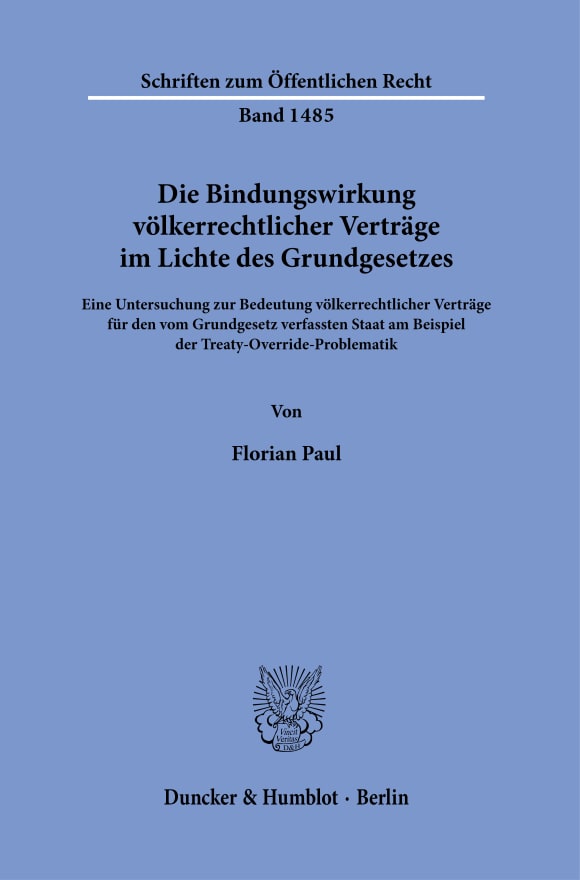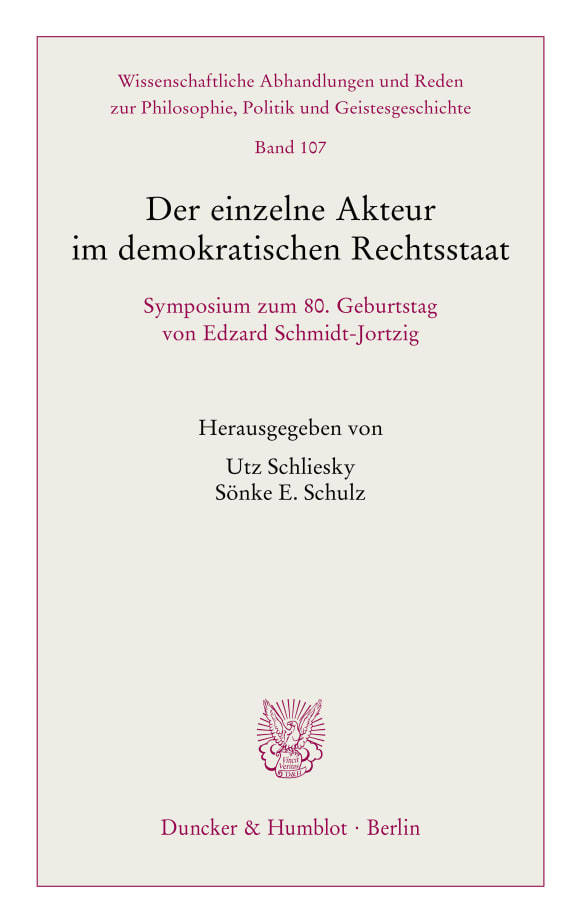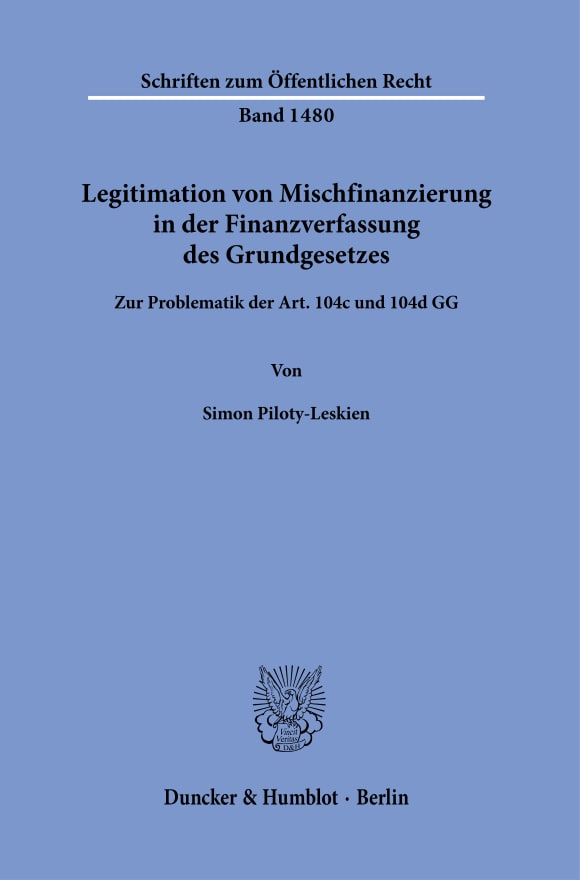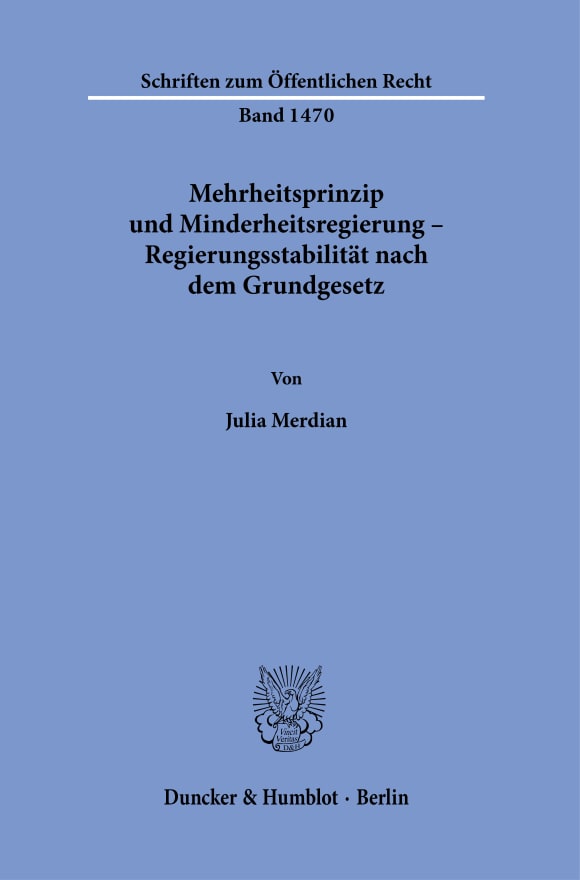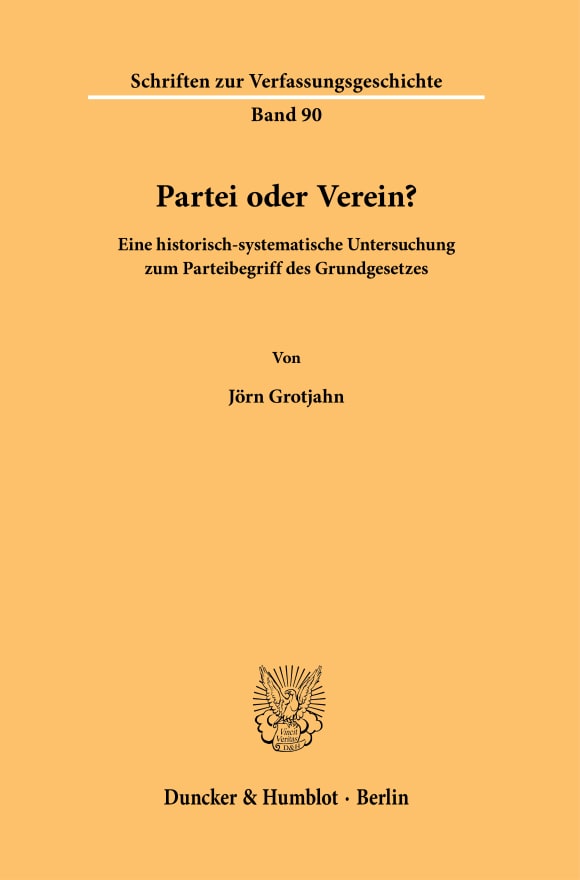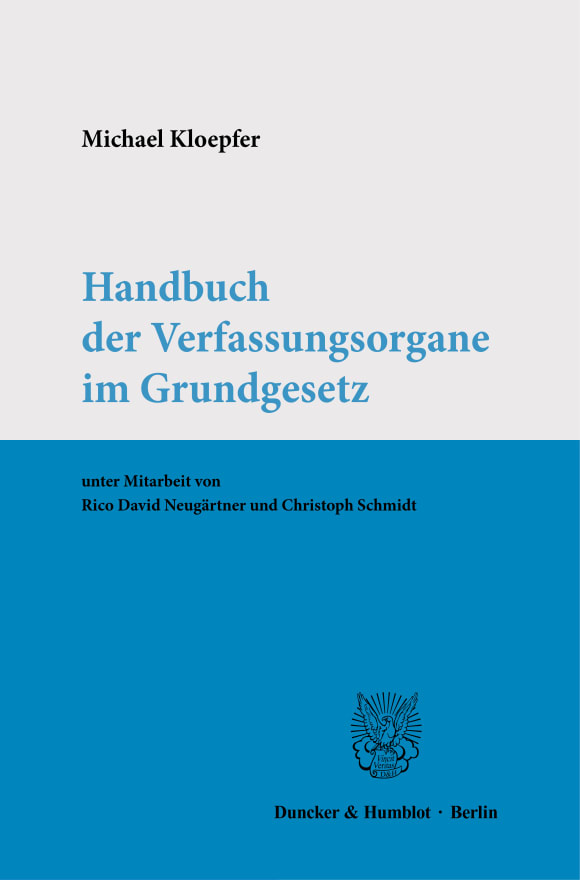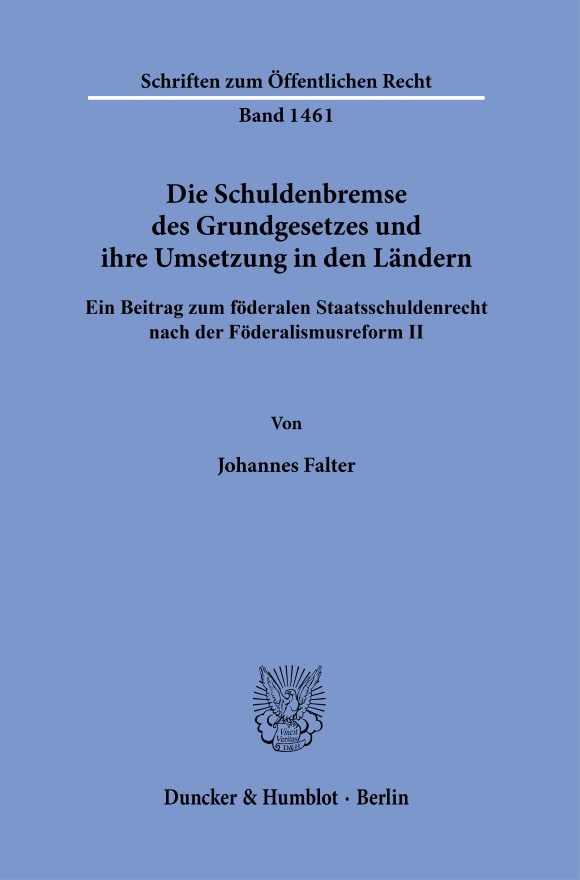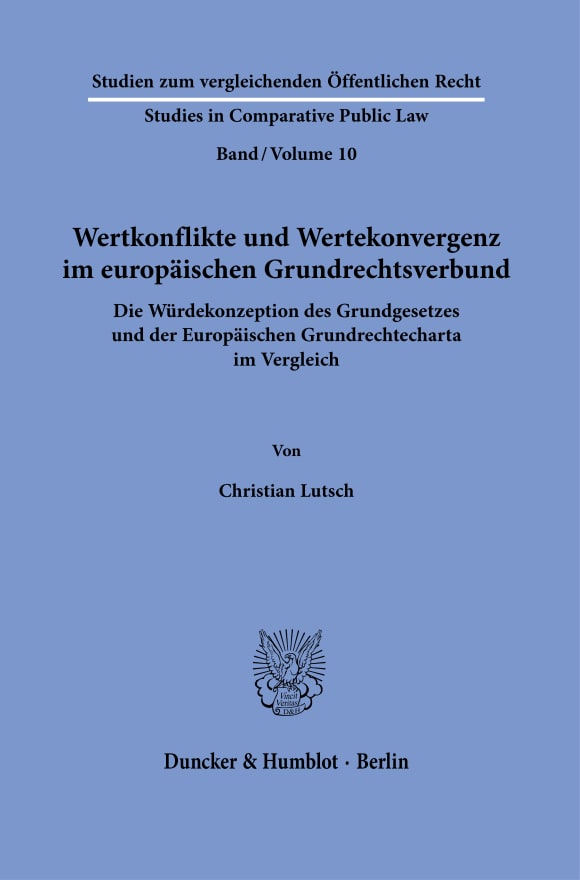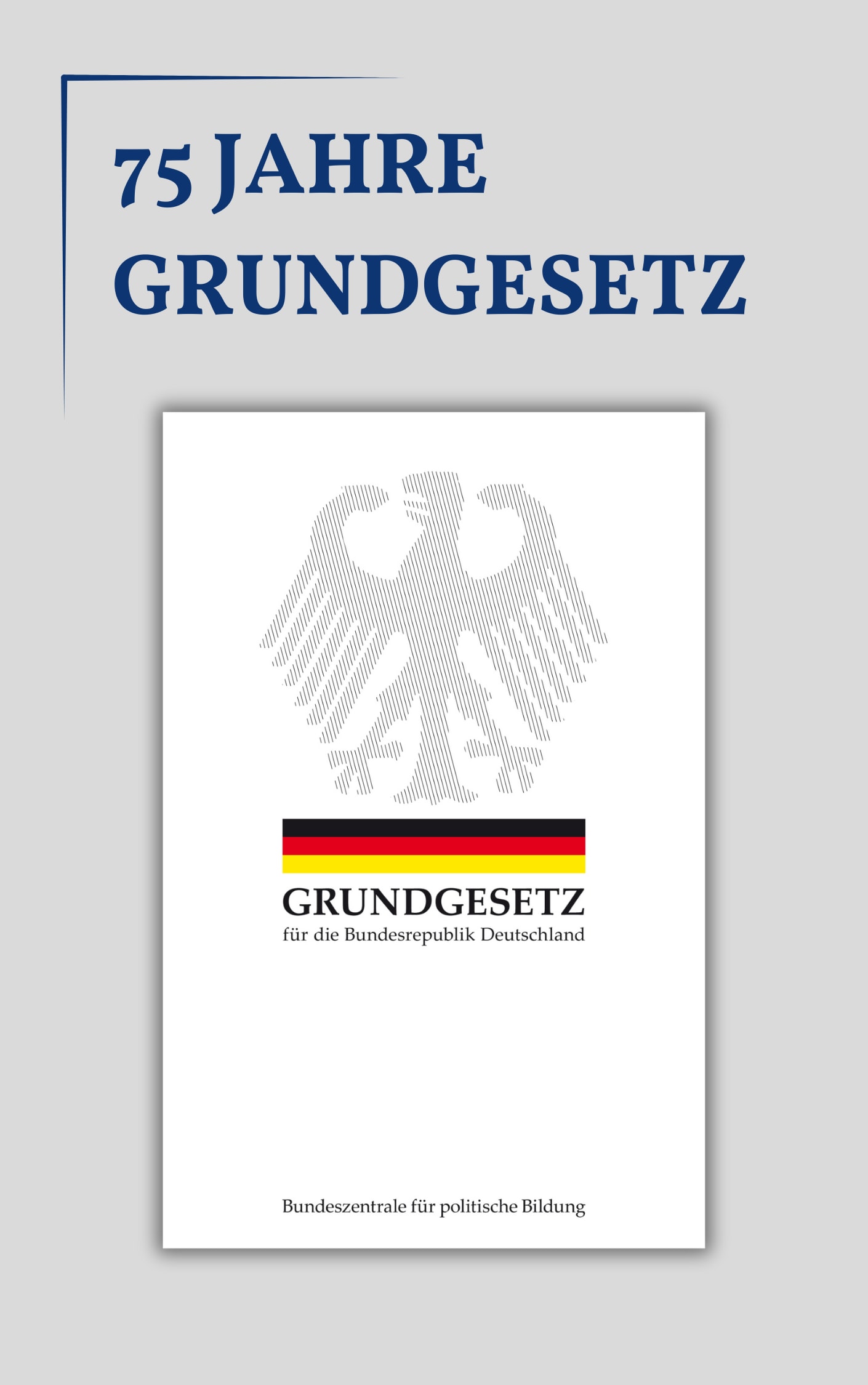
On May 8, 1949, the Grundgesetz (Basic Law) for the Federal Republic of Germany was adopted by the Parliamentary Council and approved by the Allies. On May 23, 1949, the Parliamentary Council adopted the Basic Law for the Federal Republic of Germany in a public Session in Bonn. It is the Constitution of Germany.
In 2024, the Basic Law will be 75 Years old. It guarantees Human Dignity, emphasizes the legally binding Nature of our Fundamental Rights and thus forms the Foundation of our Coexistence in a free and democratic Constitutional State. In short: the Grundgesetz is our Home.
Our Program includes many Publications – Monographs and Journal Articles - that deal with the Basic Law, Amendments to Articles of the Basic Law, Constitutional Law and Fundamental Rights. We are taking this Anniversary as an Opportunity to highlight some of these Contributions and would like to celebrate our Grundgesetz with you!
Cover: © Michael Rechl, Kassel
Our weekly Reading Recommendation on the Topic of »Grundgesetz«
Wissenschaftliche Abhandlungen und Reden zur Philosophie, Politik und Geistesgeschichte (PPG), Volume 92
Free Access Campaign on "75 Years of the Grundgesetz": Selected Articles freely accessible in Rotation
From May 23 to May 29, 2024 the journal article »Das Recht auf ein menschenwürdiges Existenzminimum« by Stephan Kirste and Ingo Sarlet from the journal DER STAAT, volume 62, issue 1/2023 can be read in free access.
Abstract:
The paper deals with the philosophical and systematic foundations of right to a social minimum for a dignified existence. It can be shown that in the history of ideas going back to Kant as well as in the current elaboration of this right by jurisprudence and literature, human dignity has a justifying, qualifying and quantifying function. Namely, it justifies the right substantially, individualizes it into an individual (claim) right, and limits the state's obligation to the benefits necessary for the realization of a dignified existence. In our article we examine these functions in terms of the history of ideas, constitutional law, and comparative constitutional law. We can show, first, that the right to a social minimum for a dignified existence is not based on a different concept of dignity and, second, that other constitutional courts take up the case law of the German Federal Constitutional Court, although they do not always create a claim right, but in some cases only objective obligations. Furthermore, we can show that the right to a social minimum for a dignified existence does not represent the essence of social rights, but has an independent meaning.
